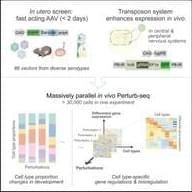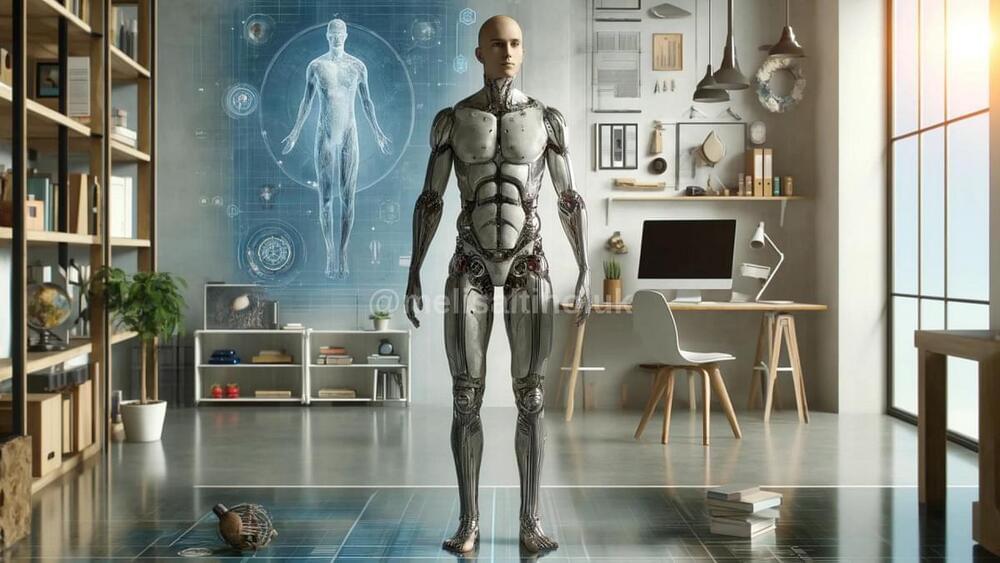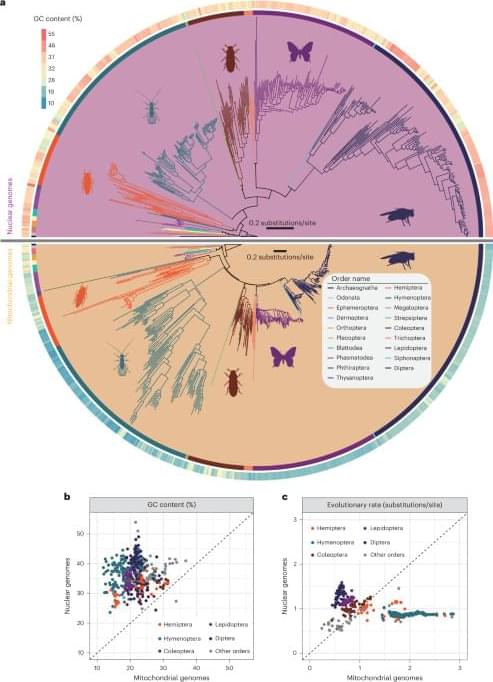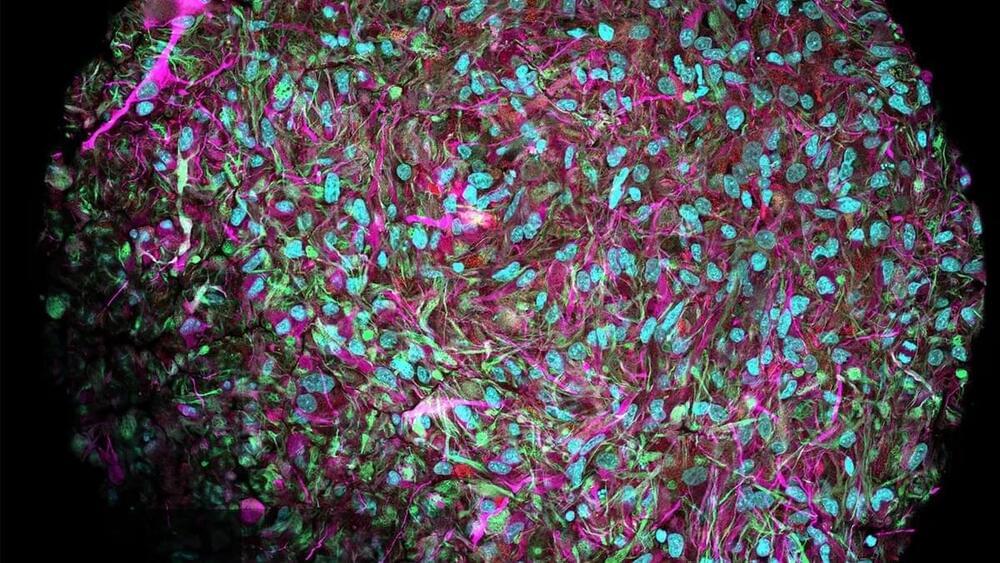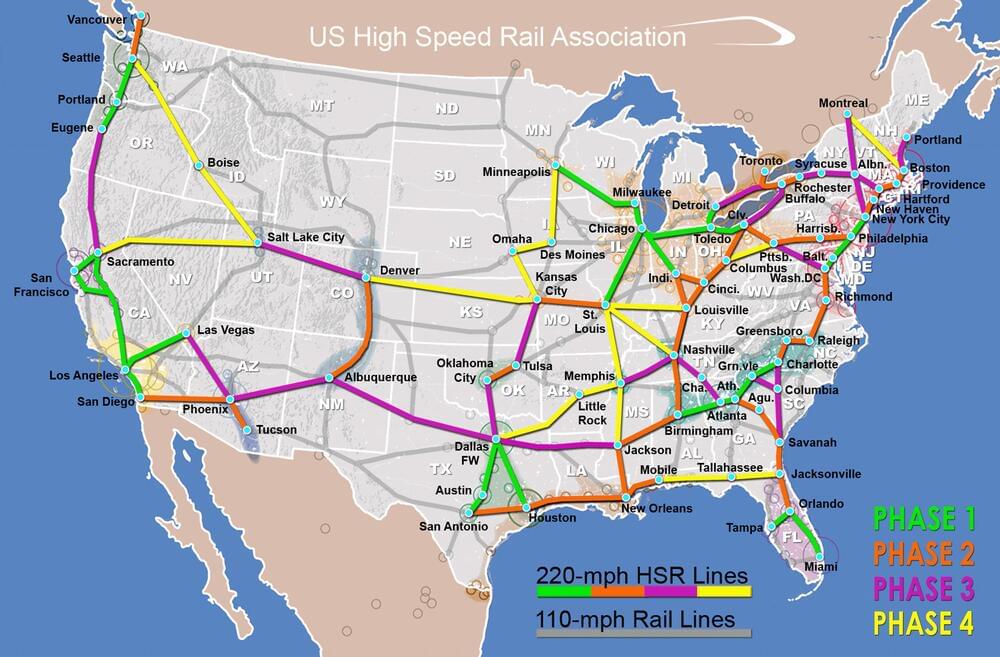
The U.S. High Speed Rail Association (USHSR) published a map outlining its proposal for a new 17,000-mile national high-speed rail network across the United States, which it claims will “cut our carbon footprint by epic proportions.”
Under the plan, which the USHSR proposes to build in four stages, it would be possible to travel between Seattle, Washington; San Diego, California; Miami, Florida; and Boston, Massachusetts, entirely on 220-mile-per-hour high-speed rail lines.
The past few years have seen a renaissance in high-speed rail interest across the United States, following decades of little activity. A number of lines are either proposed or under construction. Integrated high-speed rail networks already exist across much of Western Europe, Japan, and China, which, according to Statista, had a 25,000-mile-long network in 2021.
